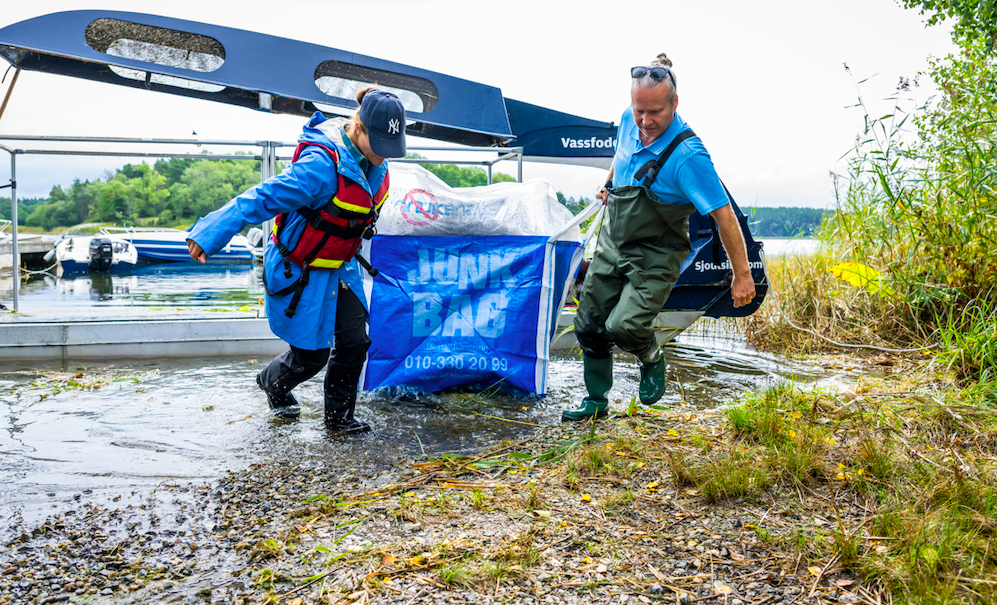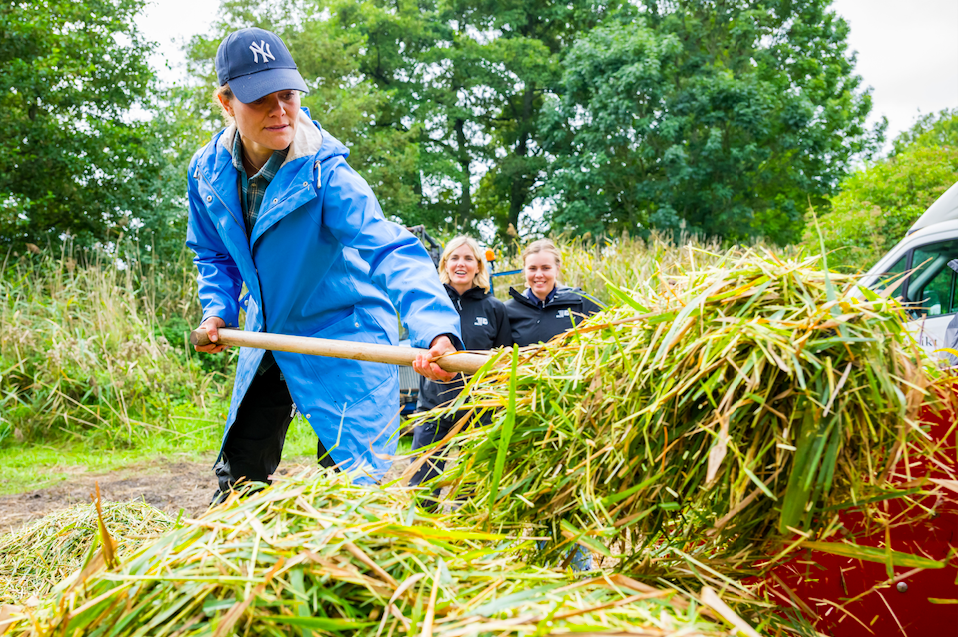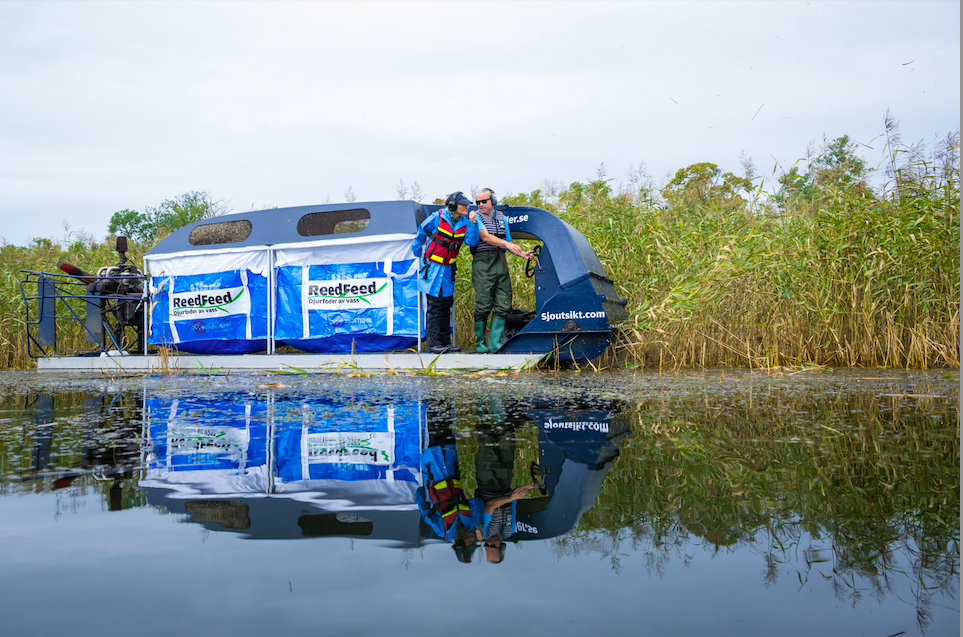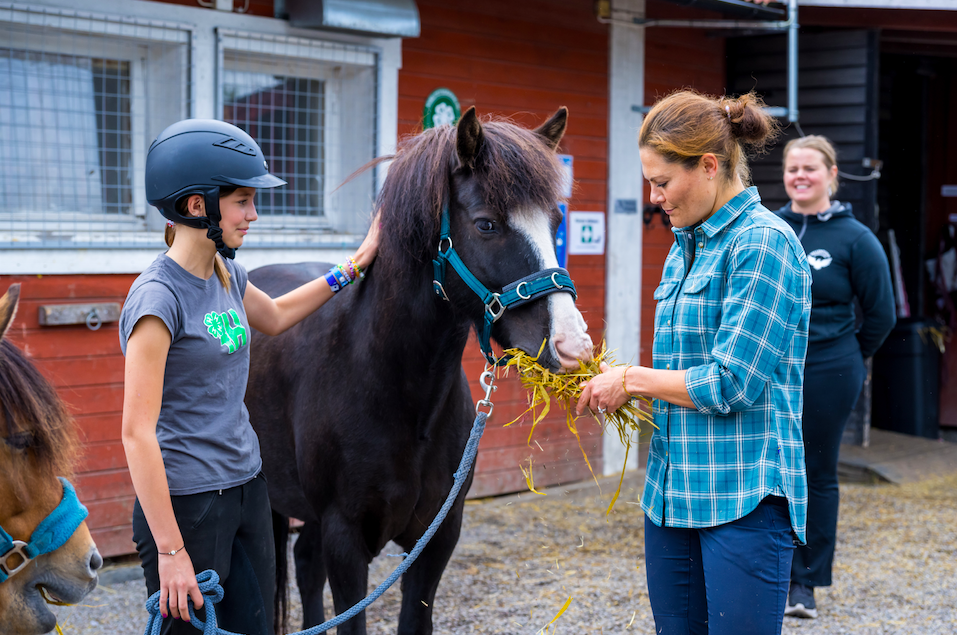BalticReed: Successful harvest, royal visit, and project kick-off
RFTB collaborated with Vaxholm municipality, Sjöutsikt, and SLU for a successful reed harvest in Vaxholm, the reed will be evaluated as animal fodder for cattle and horses. In connection to Baltic Sea Day HRH The Crown Princess made a field visit and got to experience the entire reed utilisation chain. In Helsinki, the project kicked off with partners discussing vital insights, emphasizing planning tools and reed harvesting techniques for coastal areas.
Harvest in Vaxholm
In the initial phase of the BalticReed project, RFTB successfully carried out a reed harvest in Vaxholm, Stockholm, in collaboration with Vaxholm municipality, harvesting company Sjöutsikt, and researchers from the Swedish University of Agricultural Sciences (SLU). The primary objective of the project is to circulate nutrients from eutrophicated coastal waters to the land by developing sustainable reed products. The reed harvested in Vaxholm will undergo evaluation by researchers at SLU Aqua to assess its suitability as animal fodder for cattle and horses.
Field Visit by HRH The Crown Princess
As part of Baltic Sea Day, the BalticReed project had the privilege of hosting Her Royal Highness, The Swedish Crown Princess, for a two-hour field visit. The visit showcased the entire reed utilisation chain, spanning from the reed harvest to the delivery of the final product to the customer. In this instance, ensilaged reed was delivered to the public farm 4H Vallentuna. During her visit, HRH The Crown Princess had the opportunity to explore the farm where pigs, sheep, and horses were fed with reed, and they really enjoyed the new fodder.
Project Kick-off in Helsinki
To kick off the project, all project partners and the steering group convened at the premises of the John Nurminen Foundation in Helsinki. The event commenced with a hybrid seminar with 80 participants, including invited reed experts. Discussions during the seminar centered around resolving bottlenecks in reed production chains. Key insights highlighted the necessity for effective planning tools for coastal areas and the need to further develop reed harvesting techniques.
For more information, you can access project materials at: Link to presentations
To view the kick-off seminar, visit: Link to kick off seminar
The BalticReed project is being funded by the EU’s INTERREG Central Baltic programme, which finances cross-border cooperation projects to improve the state of coastal and marine environment.
Photos: Pelle T Nilsson/SPA




